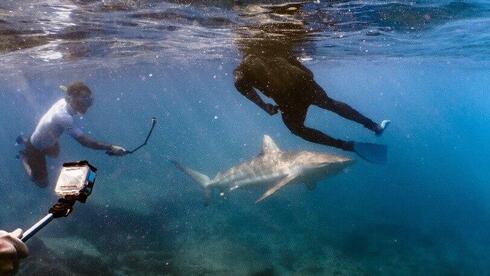Environmental advocates are calling on the government to designate the waters off Hadera’s coast as a protected natural site during shark season, warning that unregulated human activity continues to pose risks to both people and sharks following a fatal attack earlier this year.
The demand follows the death of Barak Tzach, who was killed by a shark near the mouth of the Hadera Stream in April. In the aftermath of the attack, the beach was closed to swimmers, but unregulated fishing, diving and motorized boating continue in the area, raising new safety and conservation concerns as the annual shark congregation season begins.
Shark gathering off coast of Hadera
(Video: Guy Levian/Nature and Park Authority)

 The Society for the Protection of Nature in Israel (SPNI) sent an official letter this week to Environmental Protection Minister Idit Silman, reiterating a request first made in May—after the seasonal shark departure—to declare the site a protected natural asset during the winter months (November through April). The group cited “public safety hazards that could result in further physical harm” as well as disturbing sightings of sharks with fishing hooks embedded in their bodies.
The Society for the Protection of Nature in Israel (SPNI) sent an official letter this week to Environmental Protection Minister Idit Silman, reiterating a request first made in May—after the seasonal shark departure—to declare the site a protected natural asset during the winter months (November through April). The group cited “public safety hazards that could result in further physical harm” as well as disturbing sightings of sharks with fishing hooks embedded in their bodies.
The shark gathering near the warm water outflow of Hadera’s power station is considered a globally unique phenomenon, attracting large numbers of sandbar and dusky sharks—both large, protected species—just feet from shore. Conservationists say the site offers an extraordinary opportunity for public education and nature engagement, but currently suffers from dangerous disorder.
4 View gallery
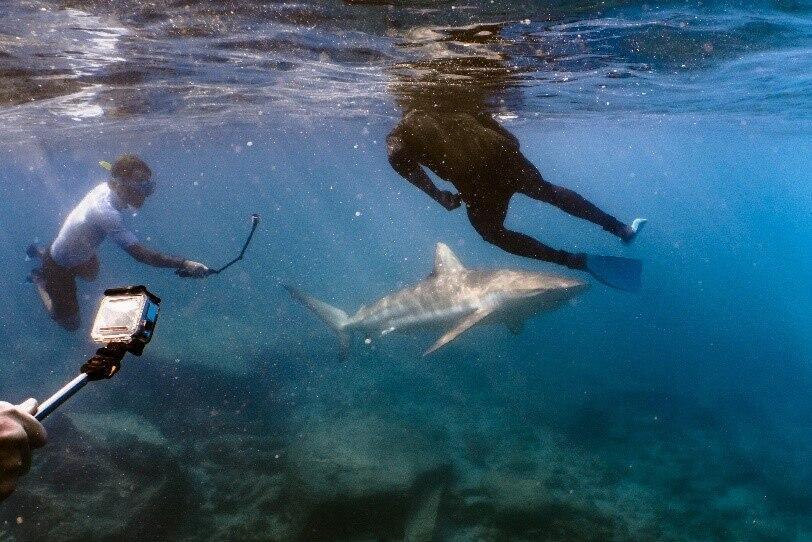

(Photo: Bar Sternbach/Society for the Protection of Nature in Israel)
4 View gallery
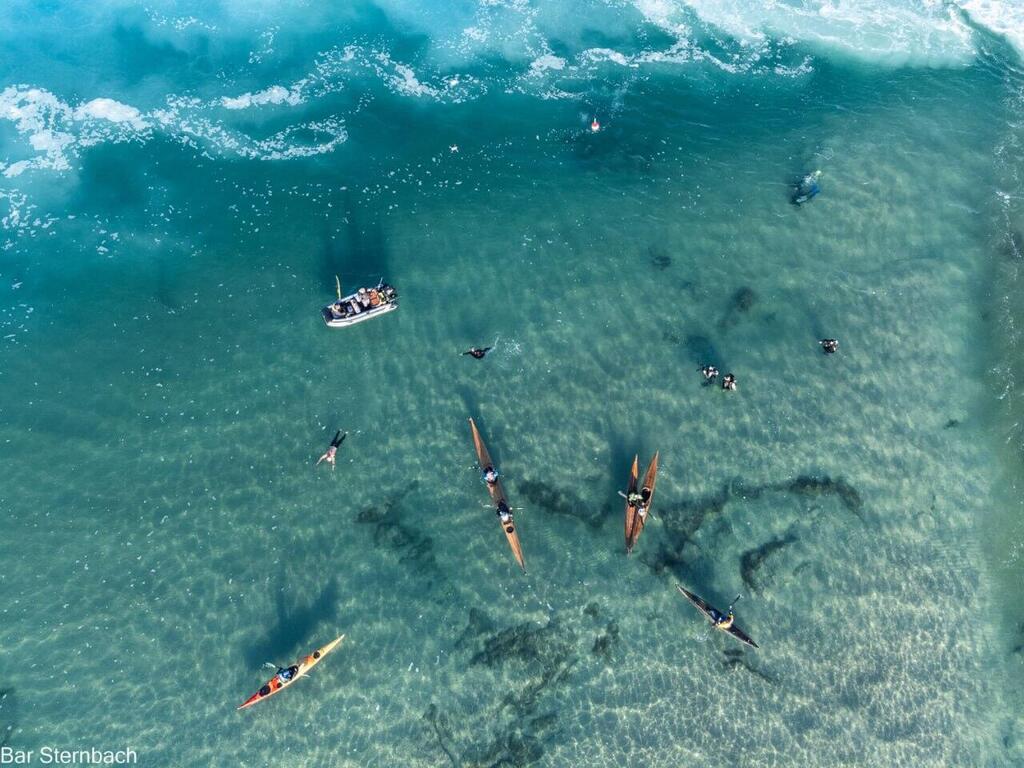

(Photo: Bar Sternbach/Society for the Protection of Nature in Israel)
“This is the only place in the world where large, endangered predators gather so close to the public in such a visible way,” said Dan Alon, SPNI’s CEO and the signatory of the letter. “And yet, it’s a site plagued by chaos that threatens both the animals and people.”
Alon noted that past attempts to regulate the area have included informational campaigns and partial enforcement, such as bans on swimming, but those do not apply to scuba divers and impose no limits on boating or fishing. SPNI is urging the minister to implement a seasonal protection order under Article 33 of the National Parks and Nature Reserves Law, designating the shark zone as a “protected natural asset” during winter months.
4 View gallery
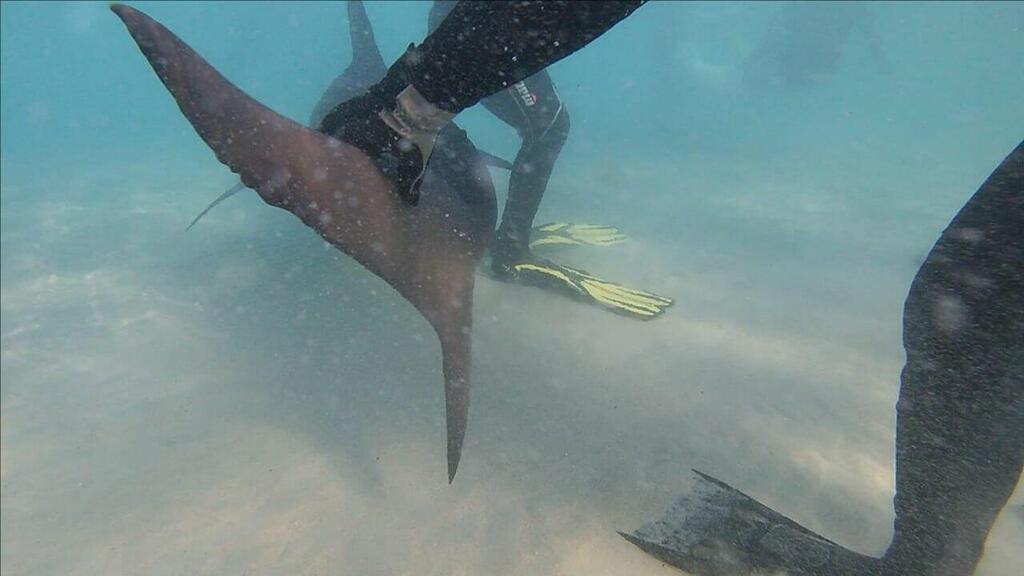

(Photo: Bar Sternbach/Society for the Protection of Nature in Israel)
4 View gallery
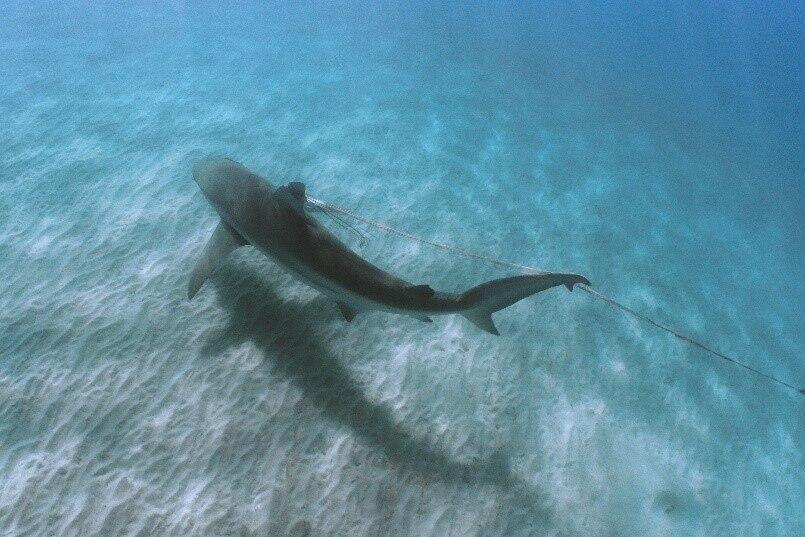

(Photo: Bar Sternbach/Society for the Protection of Nature in Israel)
According to Alon Rothschild, director of SPNI’s marine program The Blue Half, three cases of sharks being caught on fishing gear were recorded just last week. “Fishing from the shore with rods continues in the area, harming the sharks and endangering divers,” he said.
Rothschild added that the predominant shark species at the site—the sandbar shark—is listed as endangered by the International Union for Conservation of Nature (IUCN), with overfishing identified as the primary threat to its survival.
The Environmental Protection Ministry has not yet responded to the request.

